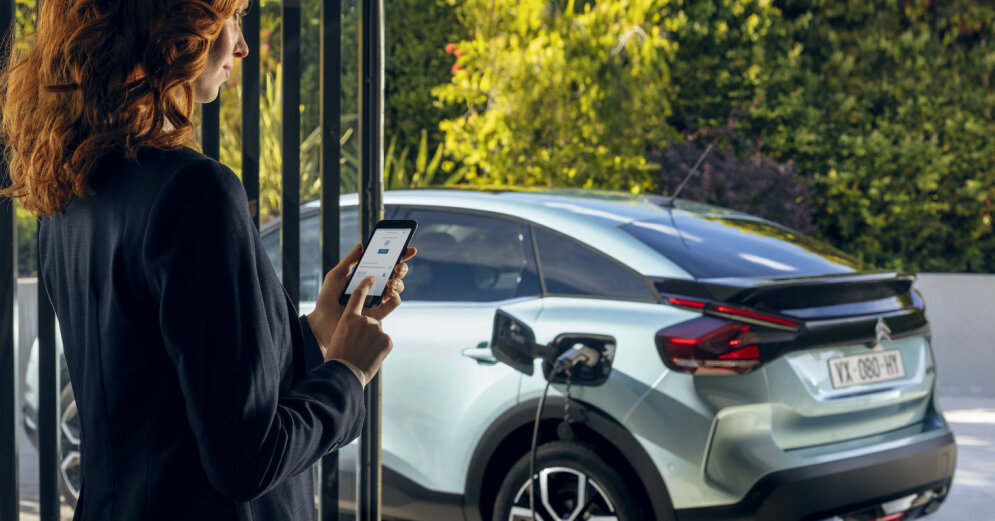While analysts anticipate and predict how electric car sales will change in the future, car manufacturers have no doubt about growth and are actively expanding the range of electric vehicles in their model range. This is prompted by research on how today’s drivers imagine car comfort and their future journeys.
–
Content will continue after the ad
Advertising
–
One of the most common reasons why people look for electric cars in car showrooms is the desire to buy an economical vehicle. Several fuel crises have already shown that driving a fossil fuel car can be an unpleasant surprise when you have to stop at a petrol station with an empty tank again. Even Americans who are crazy about Tesla electric cars and enjoy much cheaper fuel privileges than Europeans use simple math: if one mile (1.6 kilometers) by electric car costs about 4.4 US cents (3.7 euro cents ), petrol for the same distance already costs around 10 US cents (8.4 euro cents).
Fuel costs are not the only item that allows electric car users to save money. The French Citroën, whose range of models includes electric models ranging in size from the compact ë-C4 to the nine-seater commercial vehicle ë-Spacetourer, emphasizes that electric car owners spend less on vehicle maintenance. Because there are far fewer moving parts under the hood that require maintenance and could break, the electric car user does not have to worry about changing the oil or glow plugs or rust in the engine exhaust system.
One of the most exciting things appreciated by any electric car driver is the constant silence even after depressing the accelerator pedal. It is possible to assess the sounds that disappear when the internal combustion engine is running and the exhaust system vibrates. Ergonomics experts meanwhile point out that silence in the car is one of the keys to a more pleasant and less tiring trip, because instead of listening to a roaring engine, the driver and passengers can enjoy conversations on a long journey or simply listen to their favorite music without additional background noise.
The engineers who developed the Citroën ë-C4, for example, emphasize that the car’s occupants feel like a cozy cocoon, as the comfortable seats with an extra layer of comfort and Citroën’s advanced hydraulic airbag system in the suspension put the compact model on par with higher class cars.
Interestingly, modern electric cars overturn misconceptions about time consumption in charging stations. At first glance, charging may seem time consuming, and in the eyes of potential electric car buyers, this is one of the disadvantages. However, research shows that the opposite is true. If a visit to a petrol station needs to be on the agenda and planned, the electric car can be charged at home from the most common socket at night while the car is not in use.
Studies show that about 97 percent of electric car users have enough to charge their car at home and at work. Batteries charged in this way are enough to allow the car to go about its daily business for 2-3 days. So, just like a mobile phone, an electric car is charged at home and there is no need to spend time searching for a charging station.
This is one of the main definitions of modern comfort – the car has already become a smartphone or computer, the only maintenance of which is battery charging.
The specifics of electric cars give them the ability to reach the city speed or 50 – 60 km / h not only fast, but also evenly. And not only that. In electric cars, the maximum torque is felt immediately after the accelerator is pressed, while the battery built into the underside of the car provides a low center of gravity, which guarantees better stability on the road.
The most powerful electric cars, such as the Tesla Model S Performance or the Porsche Taycan Turbo S, have engines with 400 kW and even more power, which allows us to strive for ever new sprint records from 0 to 100 km / h. However, 99.9 percent of motorists do not need such power, and 100 kW for a medium-sized electric car is more than enough. For example, the Citroën ë-C4 engine, which produces exactly 100 kW or 136 horsepower, develops 260 Nm of torque. It is available at any time, allowing you to reach the speed limit allowed in the city in a few seconds.
But these are not all advantages, as electric cars are often also better equipped than their internal combustion engine analogues. Quite often, electric cars are offered with heated seats and heated steering wheel, and the driver support system package includes a number of modern solutions, such as active collision avoidance, emergency braking system, as well as an active system for driving in their lane.
Although research shows that sustainability and environmental friendliness are among the last priorities of buyers when choosing an electric car, in the long run they will be among the most important factors. Mainly because more and more cities around the world are joining the “green wave” and restricting the access of cars with internal combustion engines to old cities, residential or recreational areas where environmental pollution must be reduced.
Zero emission electric vehicles have a number of benefits. They can enter protected areas, and many countries around the world subsidize or otherwise support their acquisition to rebuild their fleets. Although no subsidies are currently provided in Latvia, there are a number of other benefits, such as no registration fee and operating tax, public transport lanes can be used, municipal parking lots in Liepāja and parking lots managed by Rīgas satiksme can be used free of charge.
–


